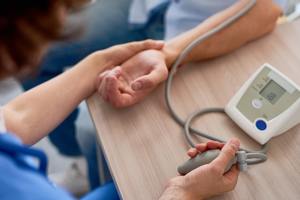Truck drivers have very strict rules when it comes to high blood pressure levels. Read on to find out how high blood pressure impacts a driving career.
They must get their DOT medical certification and those with high blood pressure may not qualify.
Drivers with high, but manageable, blood pressure must get recertified multiple times to ensure their blood pressure stays within the designated parameters.
Since truckers with high blood pressure pose a risk for themselves and everyone else on the road, the rules are strict.
How High Blood Pressure Impacts a Driving Career

- The maximum blood pressure levels are 140/90
- Drivers with high blood pressure can get certified but need to stay below the maximum levels
- Drivers can use medication to keep their levels below the maximum
- Depending on the severity, DOT recertifications can be every 3 months to once a year at first for drivers with high blood pressure
- DOT physical results are part of a driver’s record
- There are ways to lower blood pressure, both short-term and long-term
- Blood pressure levels above 181/105 will disqualify drivers
Blood Pressure and Your Health
- High blood pressure (hypertension) increases the risk of heart disease
- Hypertension damages the arteries, restricting blood flow, leading to life-threatening damage
- Left untreated, it can affect your eyesight
- Weakened arteries caused by hypertension may cause an aneurysm
- Hypertension may lead to brain damage, impairment, strokes, and kidney damage
Lowering Your Blood Pressure

Because truckers spend most of their time sitting, the heart takes on a heavy burden when pumping blood throughout the entire body.
Medication is needed once a person reaches a certain level of high blood pressure, but many people can lower their levels through lifestyle changes and supplements like L-Arginine Plus.
Here are some tips for lowering your blood pressure without medication:
- Use L-Arginine Plus
- Regular exercise
- Just a few minutes a day helps. Quick walks or small workouts daily help.
- Eat healthily
- Lower your sodium (salt) intake and increase potassium in your diet
- Limit alcohol and caffeine
- Avoid smoking
- Reduce stress levels
- Monitor your blood pressure levels
- Get regular doctor checkups

